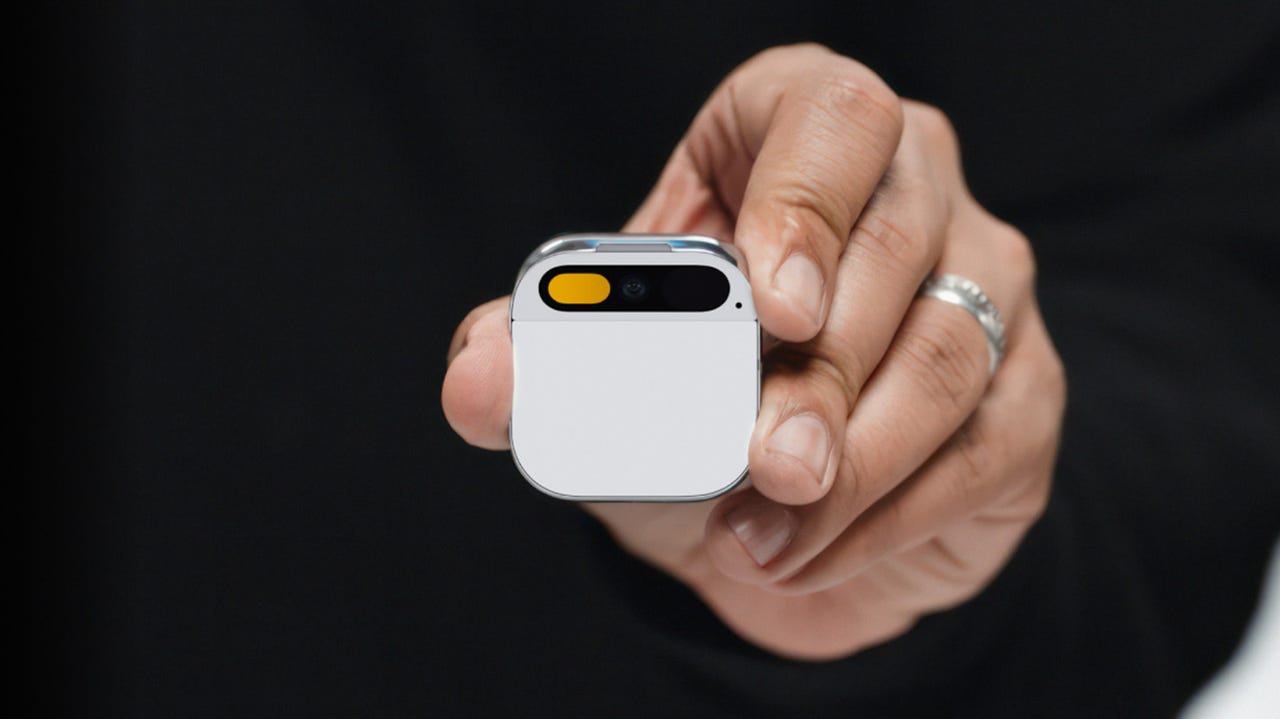'ZDNET Recommends': What exactly does it mean?
ZDNET's recommendations are based on many hours of testing, research, and comparison shopping. We gather data from the best available sources, including vendor and retailer listings as well as other relevant and independent reviews sites. And we pore over customer reviews to find out what matters to real people who already own and use the products and services we’re assessing.
When you click through from our site to a retailer and buy a product or service, we may earn affiliate commissions. This helps support our work, but does not affect what we cover or how, and it does not affect the price you pay. Neither ZDNET nor the author are compensated for these independent reviews. Indeed, we follow strict guidelines that ensure our editorial content is never influenced by advertisers.
ZDNET's editorial team writes on behalf of you, our reader. Our goal is to deliver the most accurate information and the most knowledgeable advice possible in order to help you make smarter buying decisions on tech gear and a wide array of products and services. Our editors thoroughly review and fact-check every article to ensure that our content meets the highest standards. If we have made an error or published misleading information, we will correct or clarify the article. If you see inaccuracies in our content, please report the mistake via this form.
Humane launches $699 AI-powered projector to replace your phone. That's not the craziest part


If there's one company that's truly embraced the ChatGPT/AI era, it's Humane, a secretive startup built by a super team of ex-Apple employees, including co-founders Imran Chaudhri and Bethany Bongiorno. After years of drip-feeding teasers and mission statements about its first-ever consumer product, the company today has finally launched the "AI Pin."
Also: OpenAI CEO sees uphill struggle to GPT-5, potential for new kind of consumer hardware
At the base level, the AI Pin is a wearable projector, with the ability to capture photos with an ultrawide RGB camera, send text messages and emails, and answer your most curious questions thanks to its ChatGPT-like capabilities. In case I didn't mention it already, the company is backed by OpenAI's Sam Altman and Microsoft, among others. Naturally, the AI Pin operates on AI models from both OpenAI and Microsoft.
Much like any other wearable -- wireless earbuds, smartwatches, etc. -- the AI Pin is meant to be a casual, everyday accessory. However, it's not as lightweight as its compact, all-aluminum figure makes it seem. The device, which requires a magnetic battery pack to keep it latched onto your shirt, weighs about 55 grams -- that's the weight of a tennis ball. For bulkier apparel, Humane is selling separately a clip-on accessory.
Notably, Imran Chaudhri told Wired that people with pacemakers should consult with their doctors about potential magnetic interference. In an interview with the publication, Chaudhri also mentioned that he's been able to go about his day with the AI Pin attached, from biking to running and jumping. It's even survived a one-meter-and-a-half fall on various surfaces, for what it's worth.
Where things get crazier is when the projector does, well, projector things. When prompted with a physical tap on the device, the AI Pin can project a Laser Ink Display onto the palm of your hand. You can navigate the operating system, dubbed Cosmos, by tilting or rolling your hand forward or backward. A pinch gesture with your index and thumb fingers selects what's on the projected display. And making a closed fist brings you back to the home screen.
At a TED Talk back in April, Chaudhri demoed how the AI Pin could project a caller ID when there was an incoming call, among other nifty features like summarizing your day's worth of emails and identifying foods and their nutritional values. Newer demos show how you can ask the wearable more context-based questions like "What's that exhibit Ava texted me to go see while I'm here?"
Also: Opportunities remain available for market entrants to build on AI models
The core experience of the AI pin revolves around several AI tools -- think third-party ChatGPT plugins -- to help you throughout the day. When given a prompt, the device pulls the most relevant AI tool to service your needs. That's compared to how we traditionally have to manually find the right apps on our phones, download them, and then learn how they function before anything.
Some other details on the AI Pin include its built-in "Personic Speaker," which gets both low-volume enough for more intimate audio experiences and louder for group settings. The ability to connect to Bluetooth headphones is also present, thankfully. And lastly, a "Trust Light" on the front blinks whenever the device is doing any form of recording. It's a nice touch that we've also seen on other AI-powered wearables of late.
You can access previous queries, health stats, call logs, captured photos, and more on the Humane Center web portal.
Humane's AI Pin will start at $699, with three color options (black, black with silver edges, and white with silver edges), and officially go on sale November 16. The AI Pin will also require a $24 monthly "Humane Subscription" to access cellular data via T-Mobile's network (with a phone number in tow), cloud storage for photos and videos, and unlimited queries of its voice assistant.
Ultimately, the fate of the AI Pin rests on how well it functions in the real world, such as how accurately the device can project against your palm when in the dark, whether or not you'll even be able to communicate with it in a loud room, and just how reliable it is in areas of weaker signal. Stay tuned for the review.